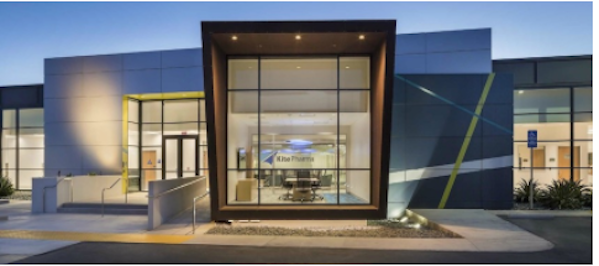Kite’s CAR-T therapies recommended by NICE for certain blood cancers
May 2, 2023
Source: drugdu
 496
496
The two treatments could benefit up to 600 patients each year in England via the Cancer Drugs Fund.

Kite – a Gilead company – has announced that two of its CAR T-cell therapies have been recommended by the National Institute for Health and Care Excellence (NICE) as options to treat certain aggressive blood cancers.
The treatments, both given as one-off infusions, have been specifically recommended for use within the Cancer Drugs Fund (CDF), which pays for cancer treatments while further data is collected on their clinical effectiveness.
Kite's Yescarta (axicabtagene ciloleucel) has been recommended for adults with diffuse large B‑cell lymphoma (DLBCL) that returns within a year of, or is resistant to, first-line chemoimmunotherapy. It can also be used with a stem cell transplant in some cases.
The treatment was previously available as standard care after two or more systemic therapies, with the updated guidance now making it available after only one.
The data supporting the recommendation was based on primary results from the phase 3 ZUMA-7 study, in which the median progression free survival in the Yescarta arm was 14.7 months compared with 3.7 months in the standard-of-care (SOC) cohort.
Dr Sridhar Chaganti, consultant haematologist, Queen Elizabeth Hospital in Birmingham, said: "This decision is a pivotal moment for expanding how CAR T-cell therapy is used to treat DLBCL… With today’s announcement, we will now have the option to use it earlier for some patients, potentially creating a new pathway and SOC.”
The second recommendation is for Tecartus (brexucabtagene autoleucel) as an additional treatment for patients aged 26 years and older with relapsed or refractory B-cell precursor acute lymphoblastic leukaemia (ALL).
Data supporting the use of the therapy was observed in the ZUMA-3 single-arm trial, in which 73% of patients treated with Tecartus achieved overall complete remission.
Overall, Kite’s therapies could benefit up to 600 people in total each year in England, according to NICE.
Evidence on the two treatments will be collected over the next four years, after which NICE will update its guidance.
Helen Knight, director of medicines evaluation at NICE, said: “We know the devastating impact lymphoma and leukaemia have on people. These innovative new treatment options will help people live longer and improve their quality of life.”
Reference:
By editorRead more on
- The first subject has been dosed in the Phase I clinical trial of Yuandong Bio’s EP-0210 monoclonal antibody injection. February 10, 2026
- Clinical trial of recombinant herpes zoster ZFA01 adjuvant vaccine (CHO cells) approved February 10, 2026
- Heyu Pharmaceuticals’ FGFR4 inhibitor ipagoglottinib has received Fast Track designation from the FDA for the treatment of advanced HCC patients with FGF19 overexpression who have been treated with ICIs and mTKIs. February 10, 2026
- Sanofi’s “Rilzabrutinib” has been recognized as a Breakthrough Therapy in the United States and an Orphan Drug in Japan, and has applied for marketing approval in China. February 10, 2026
- Domestically developed blockbuster ADC approved for new indication February 10, 2026
your submission has already been received.
OK
Subscribe
Please enter a valid Email address!
Submit
The most relevant industry news & insight will be sent to you every two weeks.



